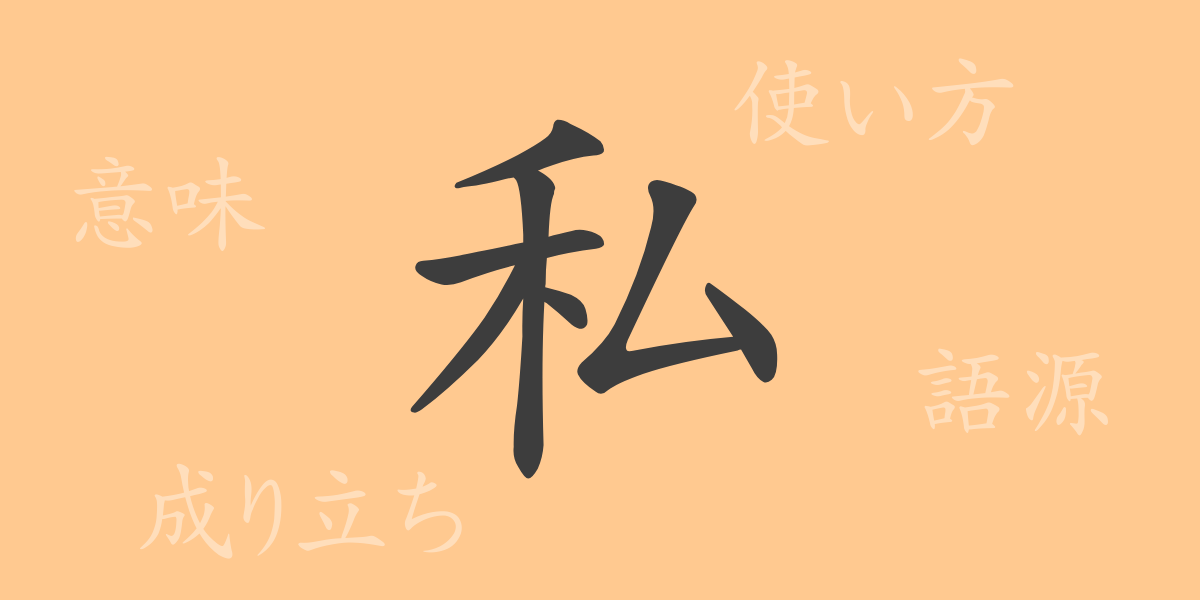The kanji character “私(わたし)” in Japanese appears simple, yet it carries a rich history and deep meaning. In this article, we will delve into the common kanji “私(わたし),” exploring its origins, modern usage, readings, stroke count, radicals, and idiomatic expressions or compounds that include this character. By examining how this character symbolizes personal identity, we uncover its deep-rooted presence in our language and culture.
Origins of 私(わたし)
The origin of “私(わたし)” dates back to the birth of kanji culture. Initially, it was used to indicate one’s fields or home. Over time, “私(わたし)” came to signify personal ownership. In ancient Chinese feudal society, it was used to denote private property and gradually evolved to mean “self.” As kanji were introduced to Japan, the concept of “私(わたし)” was adopted and developed within the unique cultural context of Japan.
Meaning and Usage of 私(わたし)
In modern Japanese, “私(わたし)” is primarily used as the first-person pronoun. It is widely used to refer to oneself, from casual conversations to business settings and literary works. Additionally, it can be pronounced as “わたくし” to express a more polite and humble tone. “私(わたし)” plays an important role in Japanese social culture, reflecting a sense of modesty and respect towards others, making it an essential part of communication.
Readings, Stroke Count, and Radical of 私(わたし)
The kanji “私(わたし)” has multiple readings and attributes:
- Readings: The on’yomi (音読み) reading is “シ,” and the kun’yomi (訓読み) readings are “わたくし” and “わたし.”
- Stroke count: “私(わたし)” consists of 7 strokes.
- Radical: The radical is “禾(のぎへん),” which originally symbolized grains, reflecting the character’s historical association with personal property.
Idioms, Phrases, and Proverbs Using 私(わたし) and Their Meanings
There are numerous idioms, phrases, and proverbs in Japanese that include “私(わたし),” reflecting Japanese thought and culture.
- 私事(しじ): Refers to personal matters, indicating issues confined to the private sphere rather than public.
- 私心(ししん): Personal feelings or thoughts, sometimes implying selfishness.
- 私欲(しよく): Personal desires, emphasizing selfish or self-centered desires.
Conclusion on 私(わたし)
The character “私(わたし)” embodies much more than the simple notion of “self.” It carries a rich history and cultural background, essential in Japanese expression. This character not only represents personal identity but also symbolizes social relationships and etiquette. In modern usage, “私(わたし)” remains a vital part of our language, continuing to live within our words.

























